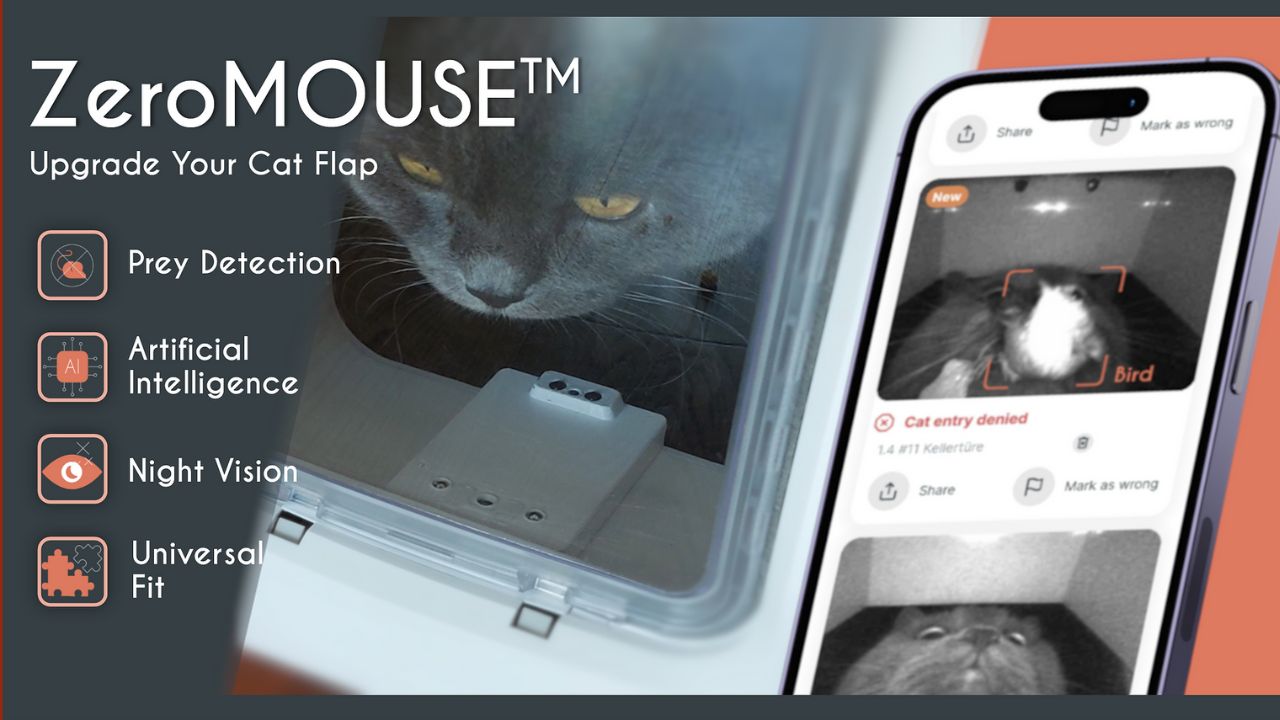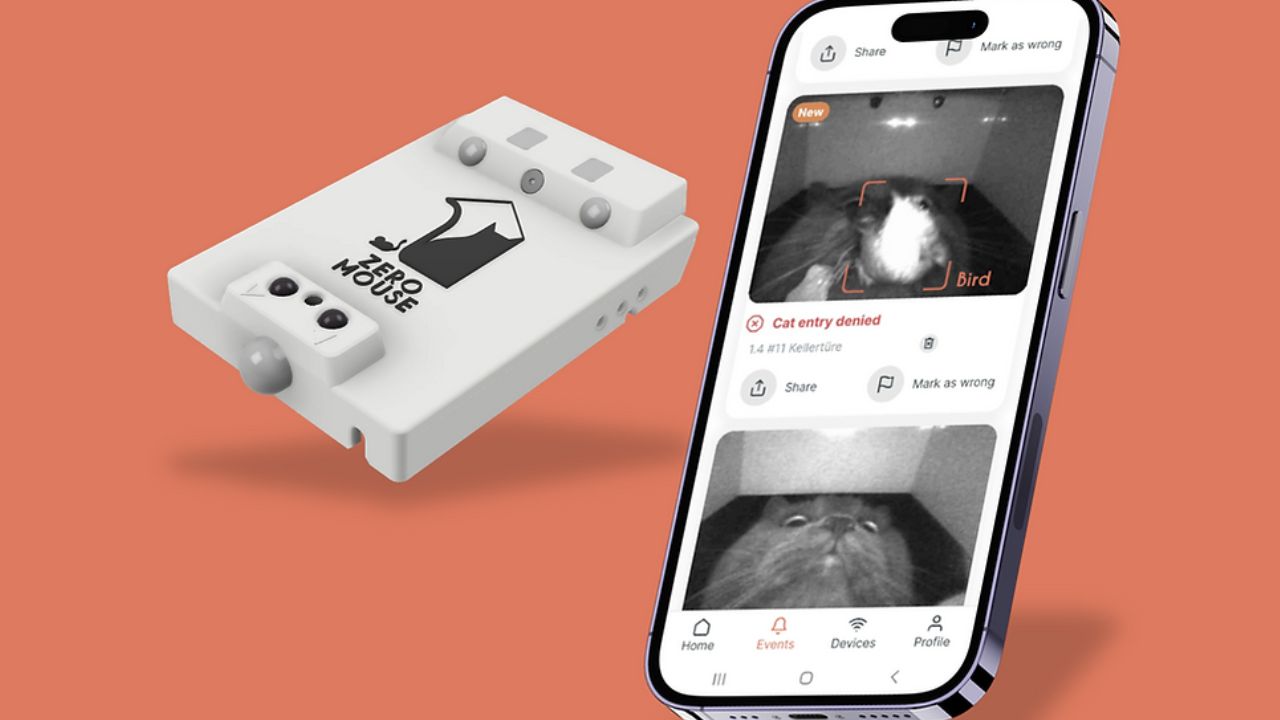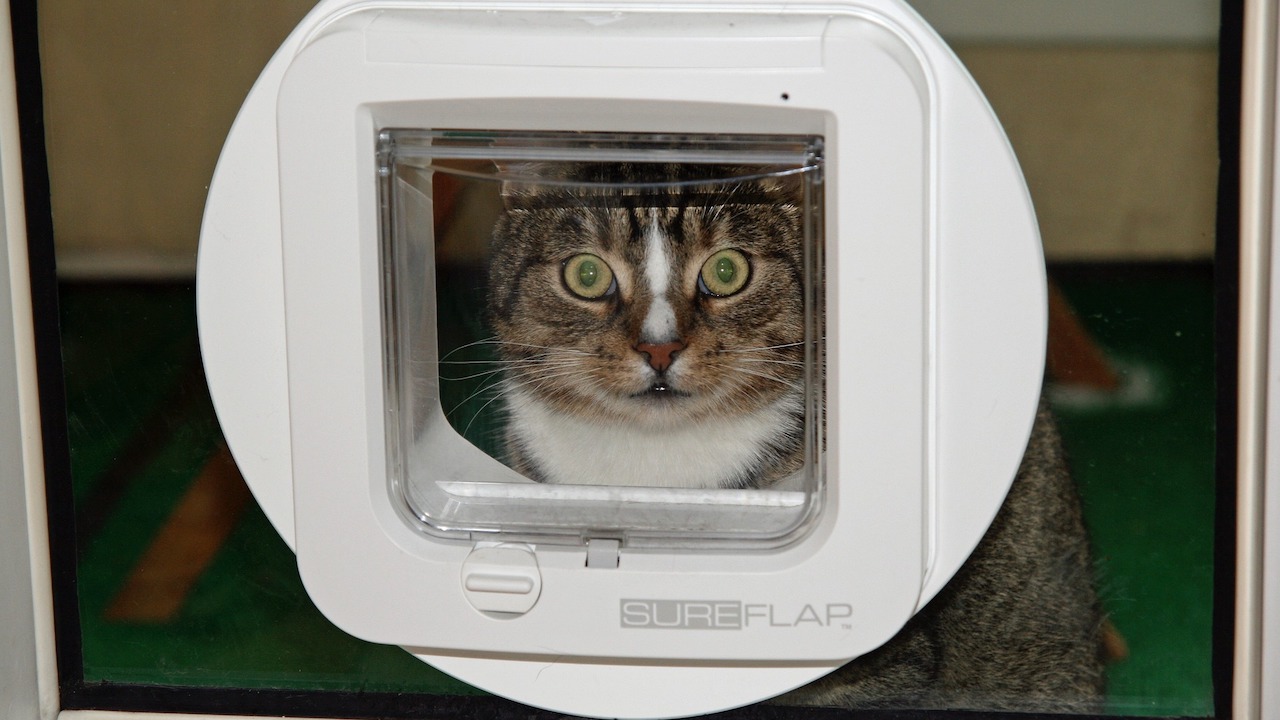Despite rising concerns over AI, pet owners may have actually found a new best friend in AI for their best friend. Cats are known to be proud predators who often show their affection and prowess through hunting, killing, and bringing their prey back home.
While a lovely gesture, this primal feline habit often leaves bewildered pet owners with bloody messes or partial or fully live birds, rodents, and bugs in their homes.

Why is RDIF not enough?
Many pet owners love their furry companions, but they also want to keep their homes clean and safe from unwanted visitors. That’s why some people install cat flaps or doors that allow their cats to go in and out as they please without having to open the main door every time.
However, not all cat flaps or doors are created equal. Some of them use radio frequency identification (RFID) technology to detect a microchip implanted in the cat’s collar or body and only open for the authorized pet. This way, other animals, such as stray cats, raccoons, or squirrels, cannot enter the house through the cat flap or door.

As long as the cat trying to enter through the corresponding RFID flap or door has the RFID chip under its skin or attached to a collar, the flap or door simply receives the signal from that chip that it is a recognized pet and will allow the cat to come in with or without prey.
An AI solution to prevent cats from bringing prey inside
What if your cat decides to bring home a dead mouse, a bird, or even a live snake? How can you prevent your cat from turning your living room into a hunting ground? That’s where the new generation of smart cat flaps or doors comes in.
ZeroMouse to the rescue
A smart device called ZeroMouse, which exceeded its fundraising goal on Kickstarter, uses AI technology to detect whether or not your cat is trying to enter the house carrying prey. It consists of an RFID pet door or flap that is connected to a camera and a speaker.
The camera uses infrared light and night-vision technology to take a photo of your cat as it approaches the door or flap, day or night. The photo is then analyzed by an AI-based algorithm that determines whether or not your cat has prey in its mouth.

Credit: ZeroMouse
MORE: BEST PET TECH GIFT GUIDE
If the cat has prey in its mouth, ZeroMouse emits an RFID signal of an unrecognized cat, so the flap or door will remain closed until the prey is left behind. Owners can choose whether or not to be notified of these occurrences through the ZeroMouse app.

Credit: ZeroMouse
MORE: PET PROBLEMS SOLVED: A GUIDE TO DEAL WITH DIFFICULT DOGS AND CATS
The smart device works with your existing pet door
Unlike other similar technology, ZeroMouse is a small device that attaches and works with most preexisting RFID-enabled pet flaps or doors, which saves pet owners the expense and pain of a new installation.
ZeroMouse does require an external power source as it isn’t battery operated and requires WiFi access as it constantly updates the AI-based algorithm with anonymous user data worldwide to improve its functionality.
The company tells us that it will begin selling ZeroMouse through online retailers in the first half of 2024.
MORE: FACIAL RECOGNITION APP CAN IDENTIFY YOUR PET’S FACE WITH 99% ACCURACY
Kurt’s key takeaways
ZeroMouse clearly demonstrates how AI can improve a pet owner’s life by solving a common challenge. Not only is ZeroMouse constantly teaching its devices new ways to detect unwanted critters in the mouths of their pets, but it may actually teach an ‘old’ cat new tricks.
How do you feel about using AI technology to modify your cat’s behavior? Let us know in the comments below.
TO GET MORE OF MY SECURITY ALERTS, SUBSCRIBE TO MY FREE CYBERGUY REPORT NEWSLETTER
Answers to the most asked CyberGuy questions:



